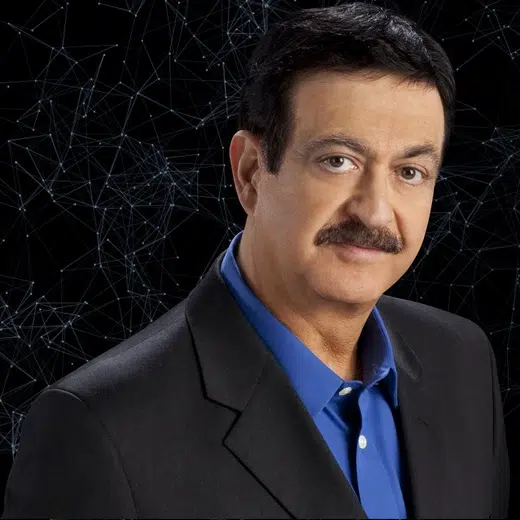By John Chalmers
BRUSSELS (Reuters) – Far-right leader Marine Le Pen looks unlikely to win France’s presidential election, but many western allies fear an upset on Sunday that could jolt the international order no less than the 2016 vote for Brexit and Donald Trump’s White House victory.
While opinion polls point to a win for President Emmanuel Macron in the run-off ballot, Le Pen’s slim chance of beating him prompted the leaders of Germany, Portugal and Spain this week to warn French voters in a joint op-ed against “a candidate who stands with those attacking our liberty and democracy”.
Prime Minister Justin Trudeau of Canada, a NATO ally, made no attempt to hide his preference, saying on Thursday that “it would be a good thing for the world” if Macron was re-elected.
Officials interviewed by Reuters in Washington and European capitals said there had been little planning by Western governments for a Le Pen win. One senior EU diplomat said it had been “just too appalling to consider” the prospect of a deep eurosceptic in the Elysee Palace who – before the invasion of Ukraine – openly admired Russian President Vladimir Putin.
Some worry that should Le Pen be elected, transatlantic unity against Russia’s invasion of Ukraine could unravel, and both NATO and the European Union would be plunged into a crisis that tears at their cohesion.
Marc Pierini, a Carnegie Europe scholar, said it would render NATO and the EU “instantly weaker”, “represent the culmination of Russian support to France’s extreme right”, and redefine the Franco-German axis long at the heart of Europe.
RUSSIA AND NATO
The Biden administration has been increasingly concerned in recent weeks about a Le Pen win as the White House ramps up new sanctions to halt the Russian military advance in the Donbas, according to a person familiar with the conversations.
Russia calls its actions in Ukraine a “special military operation.”
Le Pen agrees with sanctions against Russia’s oligarchs and its financial system, but says she is opposed to an embargo on imports of Russian energy, on which the EU is already divided.
The Washington source said her election could also slow momentum towards a key NATO summit in June where allies plan to unveil a new long-term strategy focused on containing Russia.
Le Pen has said she would take France out of the U.S.-led defence alliance’s integrated command structure to restore French sovereignty on matters of international security.
She has also pledged to end Franco-German military cooperation, including future warplane and tank programmes. This would affect the future of the 100 bln euros development of a next-generation Franco-German-Spanish fighter jet.
“It’s hard to imagine that the Franco-German tandem can still work with her,” Anton Hofreiter, leader of the European committee of Germany’s lower house of parliament, the Bundestag, who told Reuters “the EU would never be the same again”.
EUROSCEPTIC
Le Pen, 53, softened her party’s euroscepticism after she lost her bid for the presidency to Macron in 2017 to make it more acceptable to mainstream voters.
While her support is not so much driven by euro-sceptic sentiment, political opponents say her policies could ultimately lead to an estrangement or even an exit from the bloc.
She insists she has no “secret agenda” for France – a founding member of the EU – to leave the 27-nation bloc, its single currency or its passport-free Schengen zone.
However, critics believe her policies would at best create new tensions within the bloc – whose unity has been tested in recent years by a migration crisis, Britain’s departure and the COVID-19 pandemic – and at worst lead to a “Frexit”.
Le Pen has said she would cut French contributions to the EU budget, renegotiate the Schengen agreement and re-introduce checks on goods entering the country from other EU states.
Most worrying for Europhiles, she would seek to re-establish the primacy of French law over EU law – the foundational basis of European integration – and wants the bloc to become a loose association of cooperating sovereign countries.
“It amounts to a complete hollowing-out of what the EU has been trying to achieve all these years,” said the senior diplomat. “But it’s not presented that way … and of course that’s much cleverer.”
If Le Pen does challenge the primacy of EU law, she would put France on collision course with the executive European Commission, which is already mired in disputes with Hungary and Poland over the rule of law and democratic shortcomings.
It would bracket France with those two central European countries rather than the EU’s mainly liberal western states.
“She wants something that we often talk about,” said Michal Wojcik, a cabinet minister and member of United Poland, the arch-conservative junior partner in Poland’s ruling coalition.
“That the European Union should return to its roots, that it should be a Europe of homelands, and not like many politicians – including Mr. Macron – who think it should be a federated structure, which we cannot agree to,” Wojcik said.
(Additional reporting by Trevor Hunnicutt in Washington, Steve Scherer in Ottawa, Andreas Rinke in Berlin, and by Alan Charlish and Anna Koper in Warsaw; Editing by Toby Chopra)




